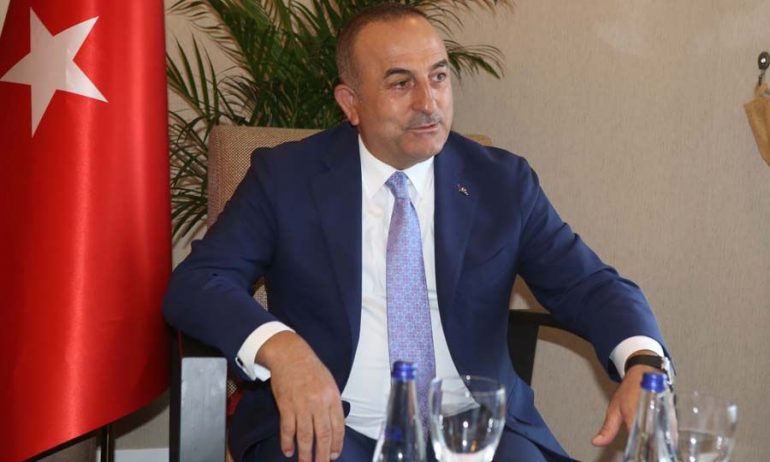Turkish Foreign Minister Mevlüt Çavuşoλουlu said that it was important for Ankara to hold an informal five-party conference to clarify the model for resolving the Cyprus issue, while the terms of reference should be completed later. He also said that there is a greater need for guarantees today than ever before, while for Varosia the right of use is important.
In an interview with "Kathimerini" and Nikos Stelgias, Mr. Tsavousoglou said that "we must first clarify what we will negotiate in the informal five-party conference and then complete the content of the terms of reference."
Asked about the future of the federal solution, Mr. Tsavousoglou said that in the past intensive negotiations on the federation did not lead to success, adding that after the failure of Crans Montana there is a need to consider alternatives.
Regarding these options, the Turkish Foreign Minister said that "the most notable proposals on this issue came from the Greek Cypriot leader in the bilateral talks", adding that "he once mentioned the two-state solution and once the decentralized federation". confederation but also the loose federation.
According to the Turkish Foreign Minister, various proposals have come to the fore, which really need to be studied.
Asked about the possibility of a two-state solution, Mr. Tsavousoglou replied that "if both sides are ready, then yes, that could happen as well", adding that Ankara does not rule out any solution model.
He went on to say that this time the process should be result-oriented, and therefore the terms of reference should not contain vague points.
He also claimed that President Anastasiadis did not believe in political equality and backed down from the convergences that had been reached in Cyprus and Switzerland. He also said that today if we go again to a process with this mentality we will lose another fifty years and we will have no result.
Asked if guarantees and security would be at the forefront of the informal conference he was proposing, Mr Tsavousoglou said no, saying "we will just discuss what we will negotiate next". As for the guarantees, he said that it is a sensitive issue, with the Turkish side wishing for their preservation and Turkey not being able to take a passive stance towards this request.
Referring to the issue of hydrocarbons, he also said that without the Turkish guarantees, the Greek Cypriot side would never have granted the Turkish Cypriot side its due right. "In any case, if it were not for Turkey's guarantees, the rights of the Turkish Cypriot people," he said, "would have been violated."
In his interview, the Turkish Foreign Minister also said that in Crans Montana, at a time when the Turkish side was flexible in its guarantees, the other side was resigning from the rotating presidency, active participation and a positive vote.
On Varosia, Mevlüt Çavuşoλουlu said the area, which had been closed for a long time, should be used. "The non-use of the area does not serve anyone," he continued, referring to a proposal by the "government" of the occupying regime, on which he said that a lot of work should be done. "Once the necessary processes are done, the plan will be announced to the public," he added.
He also said that the important thing is "the provision of the right of use", saying that many Greek Cypriots ask for this and appeal to the 'real estate committee'.
Asked about President Anastasiadis' proposal for natural gas, Mr. Tsavousoglou said that "there is no aspect that could be accepted", while stating that the proposal is addressed to Turkey and ignores the Turkish side. .
The Turkish Foreign Minister also said that "we will continue our work at sea", while he stated that the proposal of the Turkish side for the creation of a joint commission for hydrocarbons is still on the table.
Regarding his relations with the Turkish Cypriot leader Mustafa Akinci, Mr. Tsavousoglou said that there is no question of facilitating or hindering the work of Mr. Akinci. "What matters is not the opinion of the politicians or an individual, but the common component of the Turkish side," he concluded.
